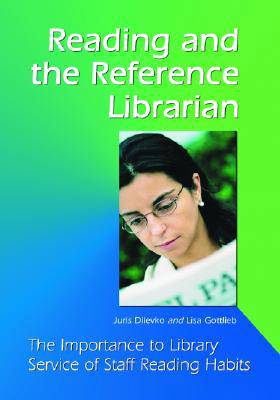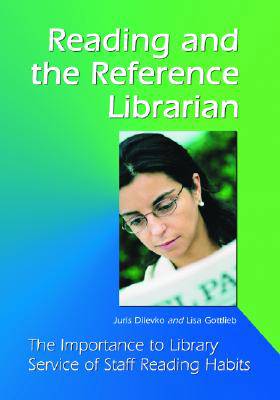
- Retrait gratuit dans votre magasin Club
- 7.000.000 titres dans notre catalogue
- Payer en toute sécurité
- Toujours un magasin près de chez vous
- Retrait gratuit dans votre magasin Club
- 7.000.0000 titres dans notre catalogue
- Payer en toute sécurité
- Toujours un magasin près de chez vous
Reading and the Reference Librarian
The Importance to Library Service of Staff Reading Habits
Juris Dilevko, Lisa GottliebDescription
Reference librarians are no longer expected to know much about the information they find; they are merely expected to find it. Technological competency rather than knowledge has become the order of the day. In many respects, reference service has become a matter of typing search terms into a library's online catalog or a web search engine and providing the patron with the results of the search. Calling for a re-intellectualization of reference librarianship, this book suggests another approach to providing quality reference service--reading.
The authors surveyed both academic reference librarians and public library reference personnel in the United States and Canada about their reading habits. From the 950 responses, the authors present findings about the extent to which librarians read newspapers, periodicals, fiction and nonfiction, and recount and analyze stories about how reading has made them better librarians. The authors also report that North American professors in the humanities and social sciences believe that the best reference librarians are those who have wide-ranging, subject-based knowledge as opposed to the type of process-based, functional knowledge that is increasingly dominating the curricula of many Library and Information Science programs.
Spécifications
Parties prenantes
- Auteur(s) :
- Editeur:
Contenu
- Nombre de pages :
- 263
- Langue:
- Anglais
Caractéristiques
- EAN:
- 9780786416523
- Date de parution :
- 26-11-03
- Format:
- Livre broché
- Format numérique:
- Trade paperback (VS)
- Dimensions :
- 177 mm x 254 mm
- Poids :
- 489 g

Les avis
Nous publions uniquement les avis qui respectent les conditions requises. Consultez nos conditions pour les avis.






